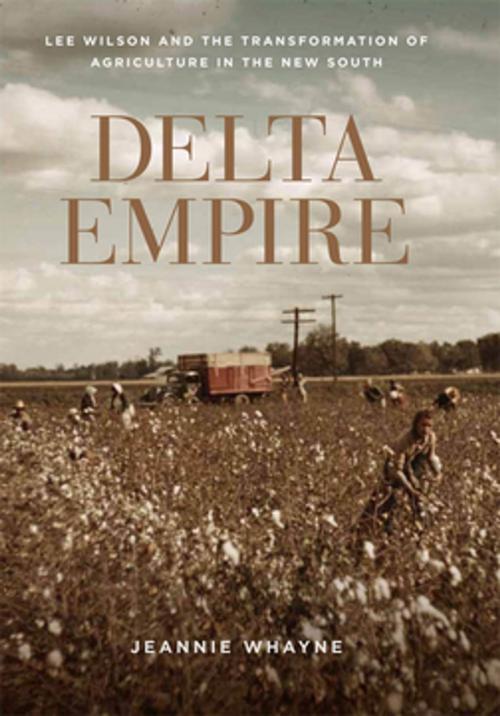Delta Empire
Lee Wilson and the Transformation of Agriculture in the New South
Business & Finance, Career Planning & Job Hunting, Labor, Nonfiction, Science & Nature, Science, Biological Sciences, Environmental Science, History, Americas, United States| Author: | Jeannie Whayne | ISBN: | 9780807138571 |
| Publisher: | LSU Press | Publication: | December 5, 2011 |
| Imprint: | LSU Press | Language: | English |
| Author: | Jeannie Whayne |
| ISBN: | 9780807138571 |
| Publisher: | LSU Press |
| Publication: | December 5, 2011 |
| Imprint: | LSU Press |
| Language: | English |
In Delta Empire: Lee Wilson and the Transformation of Agriculture in the New South Jeannie Whayne employs the fascinating history of a powerful plantation owner in the Arkansas delta to recount the evolution of southern agriculture from the late nineteenth century through World War II.
After his father's death in 1870, Robert E. "Lee" Wilson inherited 400 acres of land in Mississippi County, Arkansas. Over his lifetime, he transformed that inheritance into a 50,000-acre lumber operation and cotton plantation. Early on, Wilson saw an opportunity in the swampy local terrain, which sold for as little as fifty cents an acre, to satisfy an expanding national market for Arkansas forest reserves. He also led the fundamental transformation of the landscape, involving the drainage of tens of thousands of acres of land, in order to create the vast agricultural empire he envisioned.
A consummate manager, Wilson employed the tenancy and sharecropping system to his advantage while earning a reputation for fair treatment of laborers, a reputation -- Whayne suggests -- not entirely deserved. He cultivated a cadre of relatives and employees from whom he expected absolute devotion. Leveraging every asset during his life and often deeply in debt, Wilson saved his company from bankruptcy several times, leaving it to the next generation to successfully steer the business through the challenges of the 1930s and World War II.
Delta Empire traces the transition from the labor-intensive sharecropping and tenancy system to the capital-intensive neo-plantations of the post--World War II era to the portfolio plantation model. Through Wilson's story Whayne provides a compelling case study of strategic innovation and the changing economy of the South in the late nineteenth century.
In Delta Empire: Lee Wilson and the Transformation of Agriculture in the New South Jeannie Whayne employs the fascinating history of a powerful plantation owner in the Arkansas delta to recount the evolution of southern agriculture from the late nineteenth century through World War II.
After his father's death in 1870, Robert E. "Lee" Wilson inherited 400 acres of land in Mississippi County, Arkansas. Over his lifetime, he transformed that inheritance into a 50,000-acre lumber operation and cotton plantation. Early on, Wilson saw an opportunity in the swampy local terrain, which sold for as little as fifty cents an acre, to satisfy an expanding national market for Arkansas forest reserves. He also led the fundamental transformation of the landscape, involving the drainage of tens of thousands of acres of land, in order to create the vast agricultural empire he envisioned.
A consummate manager, Wilson employed the tenancy and sharecropping system to his advantage while earning a reputation for fair treatment of laborers, a reputation -- Whayne suggests -- not entirely deserved. He cultivated a cadre of relatives and employees from whom he expected absolute devotion. Leveraging every asset during his life and often deeply in debt, Wilson saved his company from bankruptcy several times, leaving it to the next generation to successfully steer the business through the challenges of the 1930s and World War II.
Delta Empire traces the transition from the labor-intensive sharecropping and tenancy system to the capital-intensive neo-plantations of the post--World War II era to the portfolio plantation model. Through Wilson's story Whayne provides a compelling case study of strategic innovation and the changing economy of the South in the late nineteenth century.















